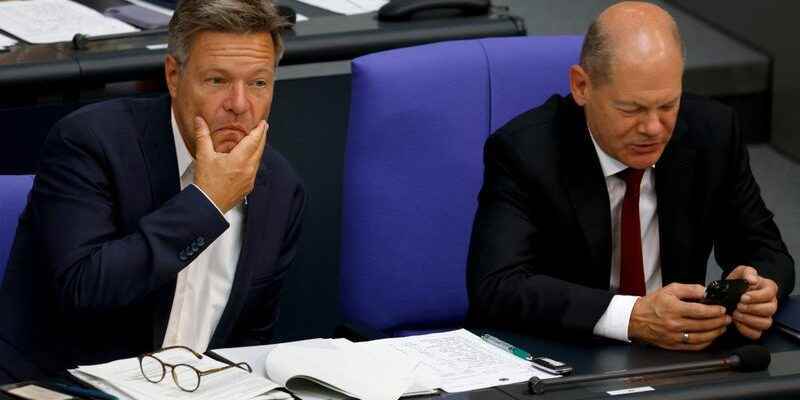When asked if he expected a wave of insolvencies at the end of this winter due to rising energy bills from businesses, Mr Habeck replied: “No, I don’t expect that. I can imagine some industries will just stop producing for the time being.”
The response, given in an interview with broadcaster ARD on Tuesday evening, drew criticism of the minister in charge of Europe’s biggest economy, with the mass-circulation newspaper Bild claiming that Habeck “has no idea of the economy.”
Friedrich Merz, the leader of the conservative opposition, also took the opportunity to criticize Habeck, Germany’s second most popular politician, saying that he and his ruling coalition were not taking issues seriously. energy and savings.
“We could see how helpless you are Mr. Habeck with these questions last night on German television,” said Mr. Merz in the lower house of parliament.
Habeck’s comments come as economists and industry groups warn that rising energy prices pose a growing risk to Germany’s medium and small businesses, which form the backbone of the economy.
After decades of benefiting from cheap Russian gas, German industry is facing a crisis as Russia cuts supplies, prompting energy suppliers to buy gas at high market prices and pass those costs on to consumers.
Rising energy costs and supply chain bottlenecks contributed to a 26% rise in insolvency proceedings in Germany in August, the IWH economics institute said on Tuesday, adding that more d insolvencies were expected in the fall.
In a survey of 593 companies by the German industry association BDI, which took place from mid-August to early September, more than a third said their existence was threatened by rising prices, compared to 23 % in February.
Some 58% of them saw skyrocketing costs as a major challenge and almost 25% were considering or were about to offshore part of their business. One in 10 companies had reduced or halted production due to the price spike.
Bavarian industry group vbw said on Wednesday that its energy price index had more than doubled in a year to July 2022.
“For more and more industries, energy prices are becoming an existential issue,” said vbw chief Bertram Brossardt.
On Sunday, Berlin announced a 65 billion euro ($64.33 billion) aid package to help citizens and businesses cope with rising prices, but BDI chief Siegfried Russwurm said it plan was not enough, calling on the government to co-finance the costs of the electricity network.
“Politicians must now take action to avoid bankruptcies and further economic and social upheavals,” Russwurm said.
($1 = 1.0104 euros)
